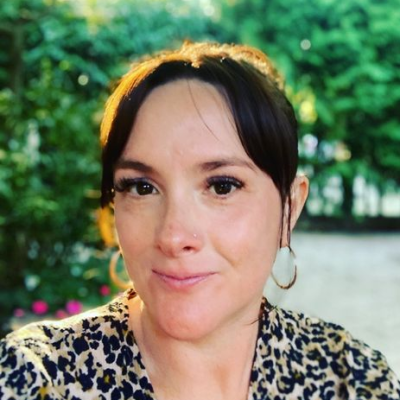Obsessions and compulsions
Obsessive-compulsive disorder (OCD) is a condition that involves obsessive thoughts and compulsive behaviours. It can affect anybody and can develop at any age, however, it usually occurs during early adulthood.
Getting help early is key and there are several treatment options available to get symptoms under control. On this page, we'll explore obsessions and compulsions in more depth and look into the various treatment options, including how hypnotherapy can provide further support.
Understanding OCD
Before we look into getting support for OCD, let’s take a closer look at the condition itself and how it affects people. While the disorder can affect people in different ways, it generally causes the following behaviours:
Obsession
This is when an unwanted thought or urge enters the mind repeatedly. Usually, this thought is distressing, for example, “If I don’t check the light switch X amount of times, my house will catch fire.”
Anxiety
Understandably, such an intrusive and distressing thought leads to feelings of stress and anxiety.
Compulsion
Typically there will then be an urge, or compulsion, to carry out an action. This may be physical (like hand washing) or mental (like counting).
Temporary relief
Carrying out this action will temporarily quell the feelings of stress and anxiety. However, obsessional thoughts and anxiety soon return and the cycle begins again.
As obsessive-compulsive disorder is an anxiety disorder, tackling anxiety is key. This is an area a hypnotherapist can support you with. Hypnotherapy encourages relaxation and speaks to you on a subconscious level to change thought patterns.
In this video, mental health advocate, presenter and writer, Shaun Flores talks about his experience with OCD on Happiful's podcast, I am. I have.
Obsessions and compulsions
Many of us experience intrusive thoughts from time to time. When these thoughts become persistent and dominate your thinking, it can become an ‘obsession’.
Those with OCD tend to have upsetting obsessions such as:
- fear of hurting themselves or others (deliberate or accidental)
- fear of being ‘contaminated’ by germs/bacteria
- a fear of becoming unwell or dying (commonly known as ‘health anxiety’)
- a desire for symmetry
The thoughts may be violent or even sexual in nature and can be very stressful for the person affected. Often people with OCD feel that their behaviours need to happen in order to protect someone that they love.
Compulsions to carry out a certain behaviour is the mind’s way of trying to prevent this anxiety (even if logically the behaviour and thought aren’t linked). The behaviours will differ from person to person but may include:
- cleaning
- counting
- repeating words
- actions
- checking (i.e. checking doors are locked, taps are off)
Someone with OCD will likely be aware that the behaviours are irrational, but the urge to carry them out overwhelms them. As it offers temporary relief from the anxiety they’re feeling, doing it ‘just in case’ or to rid themselves of said anxiety can become the norm.
The symptoms of OCD are intrusive by nature and often impact everyday life. Some people struggle to carry out daily tasks or even leave the house.
It really is a case of the emotional or ‘survival’ brain working overtime, never going off duty for long, always keeping an eye open for any potential threat.
- Gavin Roberts, Adv Dip SACH Hyp, GHR registered, GQHP, NRH on 'Hypnotherapy for OCD: How to beat the bully'
Getting help
If you think you may have obsessive-compulsive disorder, your first port of call should be your doctor. Remember that everyone has mental health and many of us need professional support to help us from time to time.
Your doctor will be able to assess you and determine whether or not it is OCD you’re struggling with. They can then explain to you which treatments are recommended.
Reducing stress and anxiety
Symptoms of OCD are often exacerbated during times of high stress or anxiety. Part of your treatment plan should, therefore, include techniques to help reduce stress and anxiety. This is an area where hypnotherapy can be especially useful.
A hypnotherapist can teach you self-hypnosis techniques to help manage stress and anxiety. This typically involves visualisation and breathing techniques which you can call upon when you need to.
OCD treatment
The two most common courses of treatment for obsessive-compulsive disorder are:
- psychological therapy (usually a specialised form of cognitive behavioural therapy, CBT)
- medication (usually selective serotonin reuptake inhibitors, SSRIs, to help balance chemicals in the brain)
Many people find that psychological therapies like CBT help, but may need extra support from medication. There is no ‘quick fix’ for anxiety conditions and there is no guarantee a certain approach will work for you.
If you are keen to explore other approaches alongside those recommended by your doctor, you may want to consider hypnotherapy for OCD.
I can manage things better now. I know it’s still there inside of me but I’m not thinking about it all the time. I lead a normal life and I feel very relieved to not have it overwhelm me and overtake my life like it did when I was younger.
- Happiful founder Aimi learned to manage her obsessive-compulsive behaviour through counselling and sharing . Read Aimi’s story.
Hypnotherapy for OCD
For some people, hypnotherapy can be helpful for OCD - whether it’s looking to help overcome the disorder itself, or to help reduce stress and anxiety associated with it.
If you’re considering hypnotherapy and you are currently having another course of psychological treatment (such as CBT), it is worth explaining this to your psychotherapist and hypnotherapist. Between them, they can ensure you’re getting the best out of each treatment and that there is no conflicting or overlapping content.
Hypnotherapy works with the unconscious mind, the part we are not aware of or are able to influence normally. Hypnotherapy works by putting you in a relaxed state so that the hypnotherapist can access this part of the mind. Once accessed, they can then influence it using suggestion techniques.
This therapy can, therefore, bring about a change in thinking patterns by working on a deeper level. The aim is to change your way of thinking to give you back control over OCD and to reduce symptoms of anxiety.
Some of the techniques used are similar to cognitive behavioural therapy, however, it works on an unconscious basis rather than a conscious one.
As well as supporting in this way, hypnotherapy for OCD can be a helpful way to learn relaxation techniques and self-hypnosis. Many hypnotherapists will offer to show you self-hypnosis techniques, which you can then take from your sessions and apply to your everyday life.
Does hypnotherapy work for OCD?
There is limited research into hypnotherapy for OCD and it is not guaranteed to work for everyone. However, it is a safe and natural approach that many find helpful in addressing their thoughts without feeling anxious. When used as a complementary therapy to support you, hypnotherapy can be a useful tool to help overcome mental health concerns like OCD.








Find a hypnotherapist dealing with obsessions and compulsions
All therapists are verified professionals


